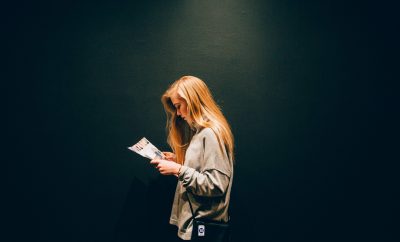 Image courtesy of [Jason Howie via Flickr]
Image courtesy of [Jason Howie via Flickr]
Technology
Blocking Social Media in Ethiopia: New Perspectives on Human Rights Violations
Earlier this month, the government of Ethiopia blocked multiple social media sites–Facebook, Twitter, Instagram and Viber–for days on end during the course of annual university entrance exams. The government initiated the shutdown in order to prevent students from sharing answers or otherwise cheating on the exams but went on to claim that it had blocked the sites because they were “a distraction” for students. It is not entirely clear from where the order to launch the shutdown came. Daniel Berhane, editor of Horn Affairs magazine, tweeted that there was no transparency regarding who made the decision and that the government issued no statement on how long social media would be blocked for. The ban on social media ultimately only lasted for a handful of days, as long as the examinations were held, but even though the duration of the ban was relatively short, its scope is troubling.
Ethiopia is not the first nation to block social media during exams–Algeria and Iraq took the same measures this spring after students published exams online. However, this could set a troubling precedent for government control of the web. The UN has defended the internet as a basic human right and has passed a resolution (albeit non-binding) that condemns nations that intentionally disrupt citizens’ internet access. Internet shutdowns have frequently been used in times of violence or impending violence–like during the terrorist attacks on Istanbul, during protests in Bahrain, Venezuela and across sub-Saharan Africa. There are arguments to be made that preventing people from sharing their location on social media can protect innocent people from being attacked if they are in imminent danger, but social media blocking is more often used to disenfranchise “troublesome” populations. Imagine if social media had been efficiently blocked for the entirety of the Arab Spring. Without social media access, populations cannot share their stories beyond the immediate, local level. In 2015, Freedom House reported that Ethiopia was blocking critical opposition websites, including international news outlets–outlets such as the BBC were jammed by the government. There was presumably no threat to the general populace if BBC ran its stories, there was only a threat to the government’s control of information voters were exposed to going into the election.
The UN resolution was a step in the right direction but its non-binding nature means that the council that signed off on it–which included multiple countries that have launched internet shutdowns against their own populace–has no imperative to truly monitor whether the internet is being denied without cause to certain populations. Activist organizations like Access Now work to protect freedom of expression online but short of drawing attention to the problem and encouraging pushback, there is relatively little they can do to block an internet shutdown. VPNs (Virtual Private Networks) have let users in China access Google, Facebook and other blocked websites for years but the VPNs are no longer a secret that governments are unaware of–they are well-publicized tools. As the methods by which the populace circumvents an internet blockage expand, governments are not falling behind. In nations such as Ethiopia where blanket control of social media is a task well within the reach of the government, there is no number of VPNs or new apps that can effectively prevent the disruption of personal expression online.








Comments